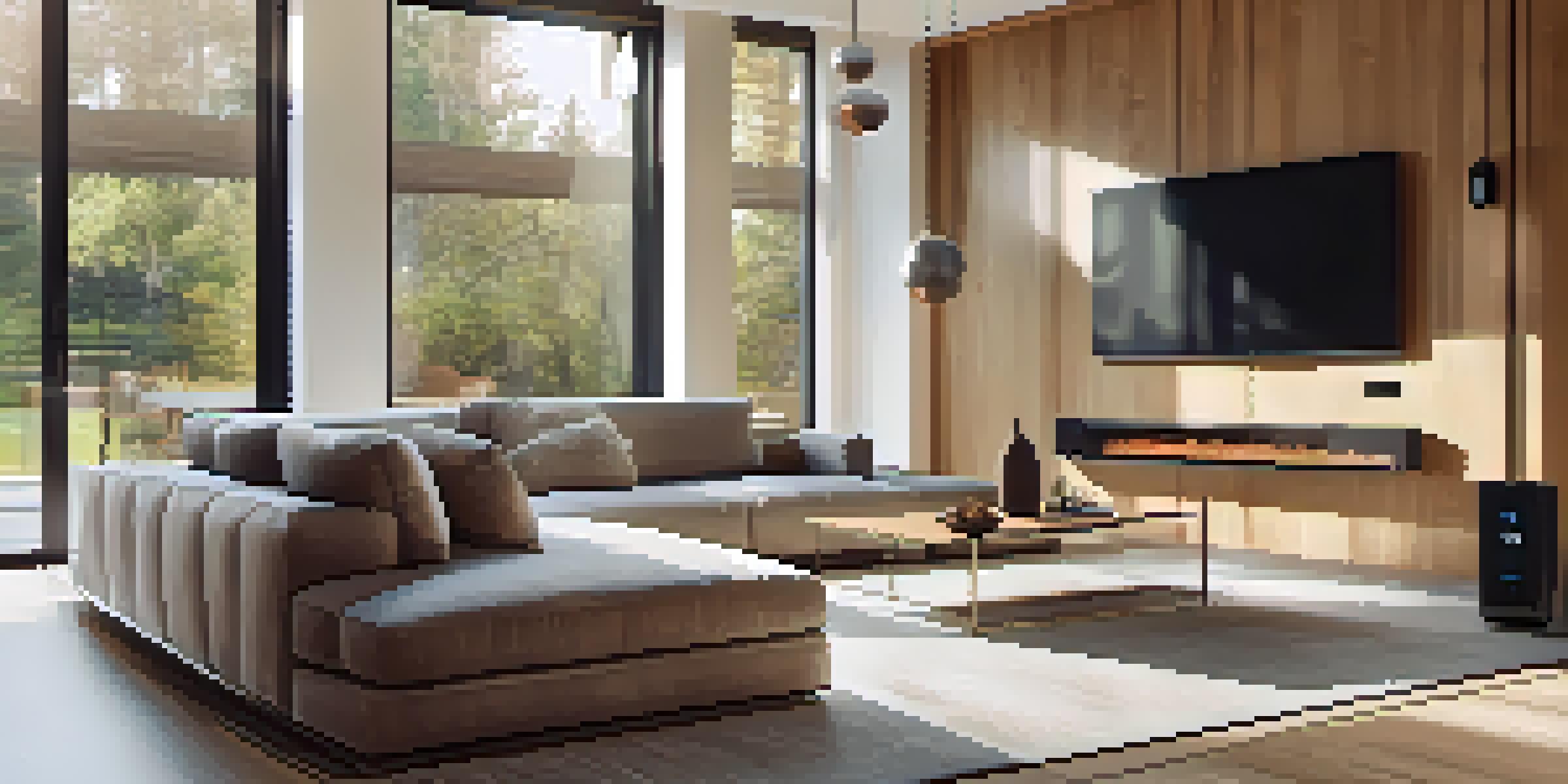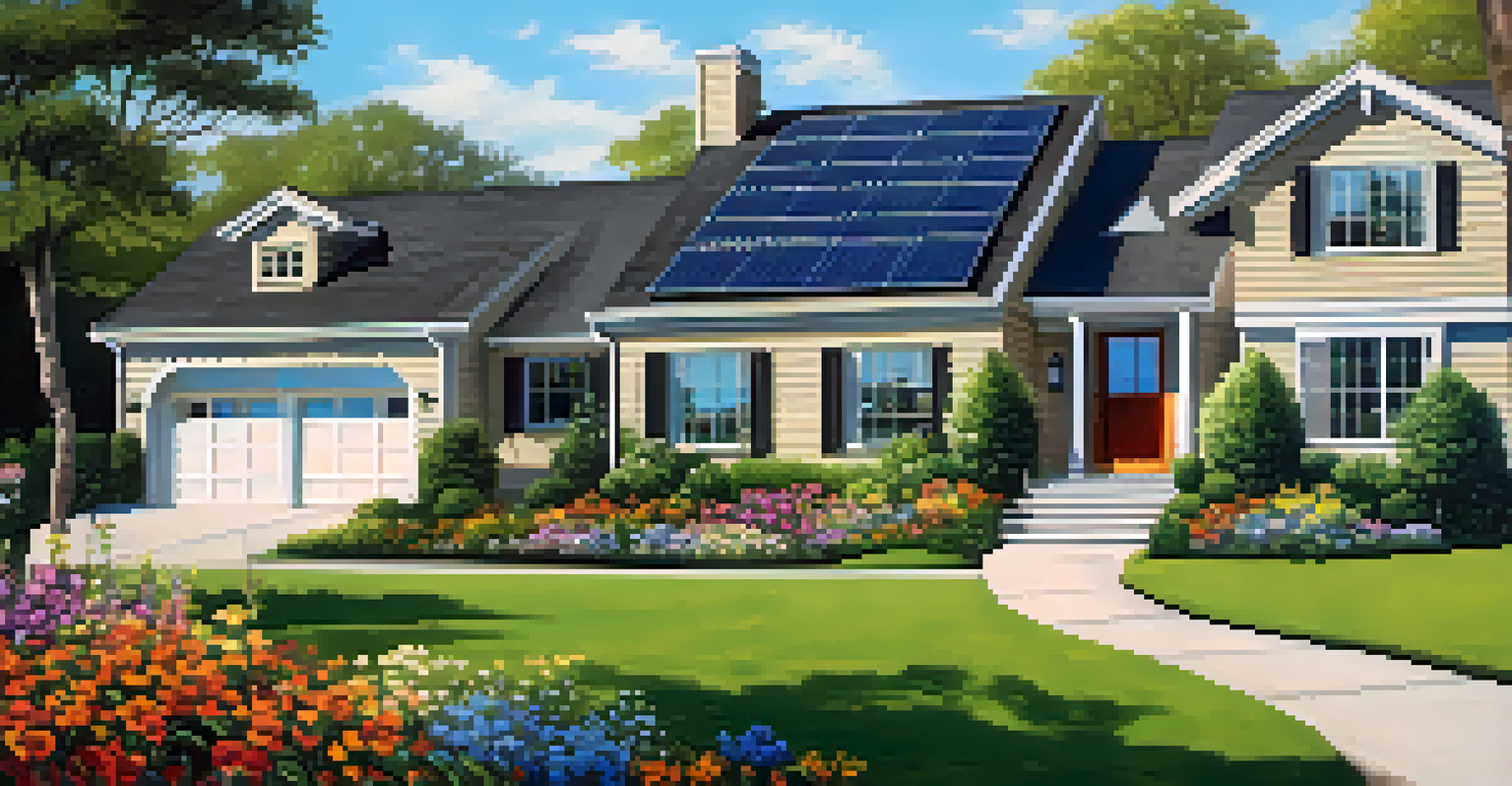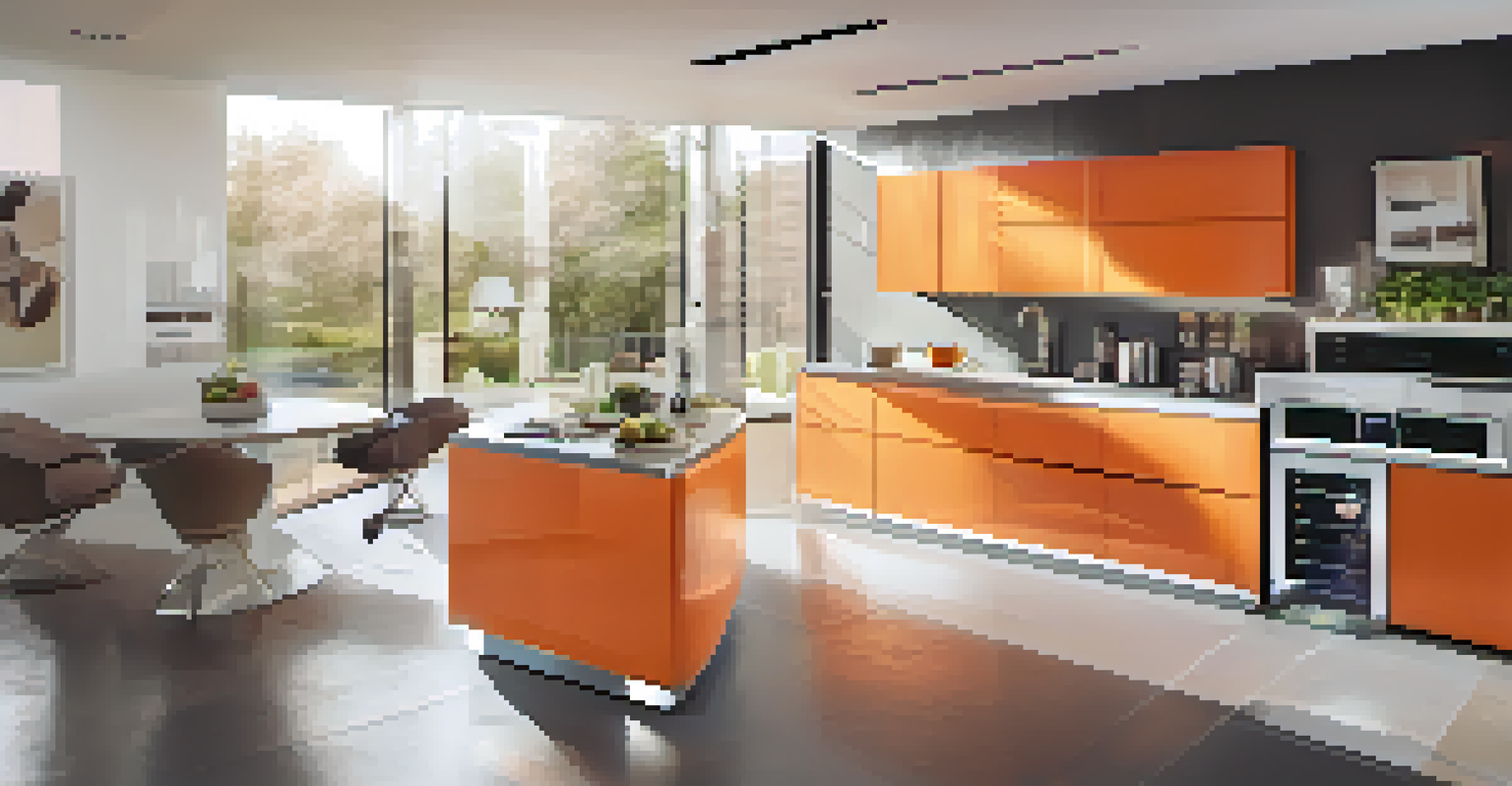The Impact of Home Automation on Property Value

Understanding Home Automation and Its Appeal
Home automation refers to the technology that enables control over various household functions, such as lighting, heating, and security, through smart devices. Imagine being able to adjust your thermostat from your smartphone while you're at work, or having your lights turn on automatically when you arrive home. This level of convenience is increasingly appealing to homebuyers, especially younger generations who grew up with technology.
Smart homes are the future of living. They enhance convenience, security, and efficiency, making life easier for homeowners.
As more homeowners integrate smart systems into their daily lives, the expectation for these features increases in the housing market. Buyers are increasingly looking for homes that offer modern conveniences and energy efficiency, making home automation an attractive selling point. It's not just about having gadgets; it's about the lifestyle that these technologies promote.
In essence, home automation enhances the comfort and efficiency of a living space, which can significantly boost its marketability. Homes equipped with these advanced features often stand out in listings, making them more appealing to prospective buyers who are willing to pay a premium for convenience and innovation.
The Link Between Home Automation and Energy Efficiency
One of the most significant benefits of home automation is its ability to improve energy efficiency. Smart thermostats, for example, learn your habits and adjust the temperature accordingly, reducing energy consumption. This not only lowers utility bills but also appeals to environmentally conscious buyers who prioritize sustainability.

Energy-efficient homes tend to attract higher offers in the real estate market. According to studies, homes with smart energy management systems can sell for 5-15% more than their traditional counterparts. This is because buyers recognize the long-term savings and environmental benefits associated with these smart technologies.
Home Automation Boosts Market Appeal
Smart home features increasingly attract buyers, as they enhance comfort, efficiency, and modern living.
In a world increasingly focused on sustainability, homes that incorporate energy-efficient automation are likely to stand out. This trend not only enhances property value but also contributes to a greener future, making it a win-win for homeowners and the planet.
Security Features: A Major Selling Point
Home automation systems often include advanced security features such as smart locks, cameras, and alarm systems. These technologies provide homeowners with peace of mind, knowing they can monitor their property remotely from their devices. For potential buyers, a home with enhanced security features can be a decisive factor in their purchasing decision.
Investing in home automation is not just about technology; it’s about enhancing lifestyle and future-proofing your property.
As crime rates fluctuate, the demand for homes with robust security options tends to rise. Buyers are increasingly willing to invest in properties that offer advanced security measures, which can lead to higher property values. This trend is especially prevalent in urban areas where safety concerns are more pronounced.
Therefore, homes equipped with smart security systems not only provide safety but also enhance their marketability. Buyers want the assurance that their investment is secure, making homes with these features more desirable.
Smart Home Integration: The Future of Living
As technology continues to evolve, the integration of smart home features is becoming more seamless. From voice-activated assistants to integrated home systems that control everything from music to appliances, the convenience factor is undeniable. Buyers are looking for homes that allow them to experience this modern lifestyle fully.
This growing demand for smart home integration means that properties with these features are often seen as more valuable. Buyers appreciate homes that not only offer individual smart devices but also provide a cohesive system that enhances their daily lives. This trend is transforming how homes are designed and marketed.
Energy Efficiency Drives Value
Homes with automation technologies not only lower energy costs but also appeal to eco-conscious buyers, often selling for more.
In a sense, investing in home automation is investing in the future. As more households embrace smart living, properties that are equipped with these systems will likely maintain their value and appeal, setting a new standard for what homebuyers expect.
Market Trends: Home Automation on the Rise
The real estate market is witnessing a significant shift towards homes equipped with automation technology. According to recent surveys, a substantial percentage of buyers list smart home features as a top priority when house hunting. This growing interest has led developers to incorporate more automation into new constructions, further driving up property values.
As home automation becomes more mainstream, its impact on property values is expected to continue rising. Homes that lack these features may struggle to compete in a market that increasingly favors tech-savvy options. Buyers are recognizing the long-term benefits of investing in smart homes, influencing market dynamics.
In summary, the demand for home automation is reshaping the real estate landscape. Properties that embrace this technology are not just keeping up with trends; they are setting the standard for future developments in the housing market.
Resale Value: Home Automation as an Investment
When it comes to selling a home, the presence of automation technology can significantly influence resale value. Homebuyers today are often willing to pay more for properties that come equipped with smart technology, as they perceive these features as an investment in their lifestyle. This can lead to a quicker sale at a higher price point.
Moreover, homes with automation systems tend to retain their value over time. As technology advances, the appeal of smart features does not diminish; rather, it evolves, making these homes more attractive to future buyers. This means that homeowners who invest in automation can expect a solid return on investment when it comes time to sell.
Smart Security Enhances Buyer Interest
Advanced security systems in homes provide peace of mind and can significantly influence purchasing decisions.
Ultimately, home automation is not just a trend; it's a strategic investment that can enhance both current enjoyment and future resale potential. As more buyers seek out these features, homeowners can feel confident that their investments in smart technology will pay off.
Challenges of Home Automation in Real Estate
While the benefits of home automation are clear, there are challenges that homeowners and buyers must navigate. One significant concern is the cost of installation and maintenance associated with smart systems. Many buyers may hesitate if they perceive these systems as an additional financial burden rather than a valuable asset.
Furthermore, the rapid pace of technological change can lead to compatibility and obsolescence issues. Homeowners might invest in a system only to find that it becomes outdated quickly or is incompatible with newer devices. This uncertainty can make some buyers wary of homes with automation features.

However, addressing these challenges is crucial for maximizing the potential of home automation. Educating buyers on the long-term benefits, installation options, and updates can help alleviate concerns and position homes with automation as desirable investments in the real estate market.
Looking Ahead: The Future of Home Automation and Value
As technology continues to advance, the future of home automation looks promising. Innovations in artificial intelligence and the Internet of Things (IoT) will likely lead to even more sophisticated systems that enhance convenience and security. This ongoing evolution will further solidify home automation's role in boosting property values.
Moreover, as more developers and builders embrace smart technology in their projects, the standard for homes will continue to rise. Potential buyers will come to expect these features as essential rather than optional, making homes without them less competitive in the market. This shift will reinforce the notion that home automation is a vital investment.
In conclusion, the impact of home automation on property value is profound and will only grow in the coming years. As homeowners and buyers recognize the benefits, homes equipped with smart technologies will remain at the forefront of real estate trends.